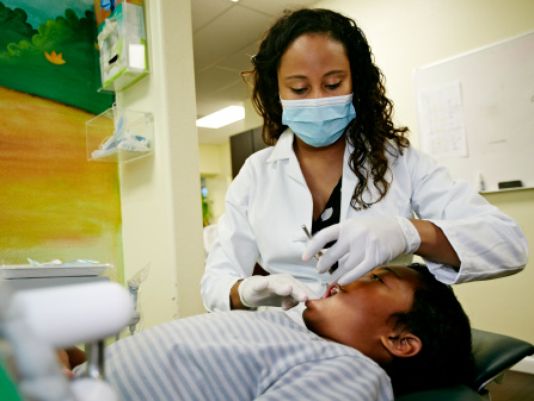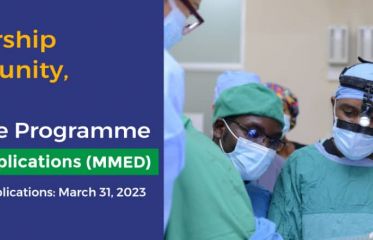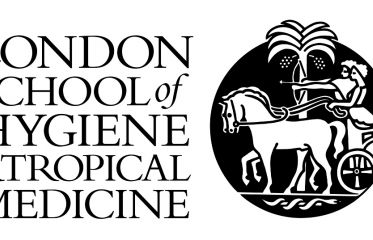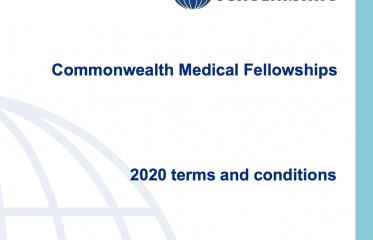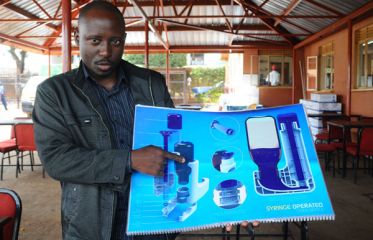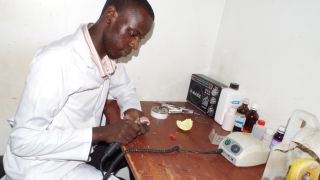Breaking News
- Ministry of Education and Sports Azerbaijan Government Scholarships For 2025-2026 Academic Year ...Read More
- Government Sponsorship Undergraduate Admission Lists 2025-26 for Makerere University ...Read More
- Ministry of Education And Sports: Egyptian Government Scholarships 2025-2026 Academic Year ...Read More
- Ground Breaker Full Scholarship for girls to study Software Engineering 2025 July Intake ...Read More
- Tony Elumelu Foundation Entrepreneurship Programme (TEEP) 2025 for young African Entrepreneurs ...Read More
- DESIGNING FUTURES 2050 International Design Competition 2025 (€15,000 prize) ...Read More
- Ground Breaker Full time Scholarship for girls to study Software Engineering 2025 Intake ...Read More
- Ministry of Education And Sports Algerian Vocational Training Scholarships for 2024-2025 AY ...Read More
- Ministry of Education and Sports Advert for the Algerian Government Scholarships for 2024-2025 ...Read More
- Uganda Dev Summit 2024 Live Stream ...Read More
Dentist
Examine, diagnose, and treat diseases, injuries, and malformations of teeth and gums. May treat diseases of nerve, pulp, and other dental tissues affecting oral hygiene and retention of teeth. May fit dental appliances or provide preventive care.
Add to FavouritesExamine, diagnose, and treat diseases, injuries, and malformations of teeth and gums. May treat diseases of nerve, pulp, and other dental tissues affecting oral hygiene and retention of teeth. May fit dental appliances or provide preventive care.
Daily Activities / Routine Tasks
Dentists typically do the following:
1. Remove decay from teeth and fill cavities
2. Repair cracked or fractured teeth and remove teeth
3. Straighten teeth to correct bite issues
4. Place sealants or whitening agents on teeth
5. Administer anesthetics to keep patients from feeling pain during procedures
6. Write prescriptions for antibiotics or other medications
7. Bleach,clean,or polish teeth to restore natural color
8. Design, make, or fit prosthodontic appliances, such as space maintainers, bridges, or dentures, or write fabrication instructions or prescriptions for denturists or dental technicians
9. Examine x rays of teeth, gums, the jaw, and nearby areas for problems
10. Make models and measurements for dental appliances, such as dentures, to fit patients
11. Diagnose and treat diseases, injuries, or malformations of teeth, gums, or related oral structures and provide preventive or corrective services
12. Teach patients about diet, flossing, use of fluoride, and other aspects of dental care
Dentists use a variety of equipment, including x-ray machines, drills, mouth mirrors, probes, forceps, brushes, and scalpels. They also use lasers, digital scanners, and other computer technologies.
Dentists in private practice also oversee a variety of administrative tasks, including bookkeeping and buying equipment and supplies. They employ and supervise dental hygienists,dental assistants, dental laboratory technicians, and receptionists.
Specialty areas.
Dental public health specialists promote good dental health and the prevention of dental diseases in specific communities.
Endodontists perform root-canal therapy, by which they remove the nerves and blood supply from injured or infected teeth.
Oral and maxillofacial radiologists diagnose diseases in the head and neck through the use of imaging technologies.
Oral and maxillofacial surgeons operate on the mouth, jaws, teeth, gums, neck, and head, including procedures such as surgically repairing a cleft lip and palate or removing impacted teeth.
Oral pathologists diagnose conditions in the mouth, such as bumps or ulcers, and oral diseases, such as cancer.
Orthodontists straighten teeth by applying pressure to the teeth with braces or other appliances.
Pediatric dentists focus on dentistry for children and special-needs patients.
Periodontists treat the gums and bone supporting the teeth.
Prosthodontists replace missing teeth with permanent fixtures, such as crowns and bridges, or with removable fixtures such as dentures.
Areas of Knowledge
Medicine and Dentistry : Knowledge of the information and techniques needed to diagnose and treat human injuries, diseases, and deformities. This includes symptoms, treatment alternatives, drug properties and interactions, and preventive health-care measures.
Customer and Personal Service : Knowledge of principles and processes for providing customer and personal services. This includes customer needs assessment, meeting quality standards for services, and evaluation of customer satisfaction.
Biology : Knowledge of plant and animal organisms, their tissues, cells, functions, interdependencies, and interactions with each other and the environment.
Psychology : Knowledge of human behavior and performance; individual differences in ability, personality, and interests; learning and motivation; psychological research methods; and the assessment and treatment of behavioral and affective disorders.
Administration and Management : Knowledge of business and management principles involved in strategic planning, resource allocation, human resources modeling, leadership technique, production methods, and coordination of people and resources.
Chemistry : Knowledge of the chemical composition, structure, and properties of substances and of the chemical processes and transformations that they undergo. This includes uses of chemicals and their interactions, danger signs, production techniques, and disposal methods.
Economics and Accounting : Knowledge of economic and accounting principles and practices, the financial markets, banking and the analysis and reporting of financial data.
Key Abilities
Deductive Reasoning : The ability to apply general rules to specific problems to produce answers that make sense.
Finger Dexterity : The ability to make precisely coordinated movements of the fingers of one or both hands to grasp, manipulate, or assemble very small objects.
Inductive Reasoning : The ability to combine pieces of information to form general rules or conclusions (includes finding a relationship among seemingly unrelated events).
Control Precision : The ability to quickly and repeatedly adjust the controls of a machine or a vehicle to exact positions..
Near Vision : The ability to see details at close range (within a few feet of the observer).
Arm-Hand Steadiness : The ability to keep your hand and arm steady while moving your arm or while holding your arm and hand in one position.
Problem Sensitivity : The ability to tell when something is wrong or is likely to go wrong. It does not involve solving the problem, only recognizing there is a problem.
Oral Comprehension : The ability to listen to and understand information and ideas presented through spoken words and sentences.
Top Skills
Communication skills. Dentists must have excellent communication skills. They must be able to communicate effectively with patients, dental hygienists, dental assistants, and receptionists.
Detail oriented. Dentists must be detail oriented so patients receive appropriate treatments and medications. They must also pay attention to space, shape, and color of teeth. For example, they may need to closely match a false tooth with a patient’s other teeth.
Dexterity. Dentists must be good at working with their hands. They work with tools in a limited area.
Leadership skills. Most dentists work in their own practice. This requires them to manage and lead a staff.
Organizational skills. Strong organizational skills, including keeping accurate records of patient care, are critical in both medical and business settings.
Patience. Dentists may work for long periods of time with patients who need special attention. Children and patients with a fear of dental work may require a lot of patience.
Physical stamina. Dentists should be comfortable performing physical tasks, such as bending over patients for long periods.
Problem-solving skills. Dentists need strong problem-solving skills. They must evaluate patients’ symptoms and choose the appropriate treatments.























